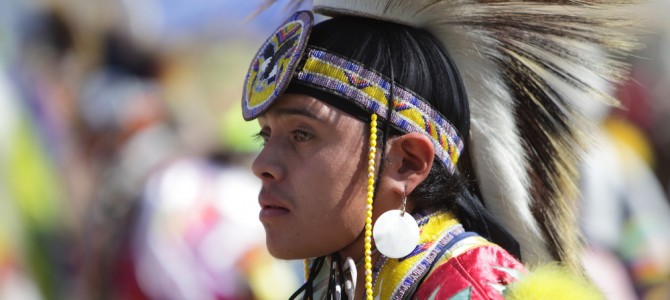Washington, D.C. is the latest American city to cancel Columbus Day in favor of Indigenous People’s Day. By now we are all familiar with the justifications for this change.
Christopher Columbus is argued to be by today’s standards a genocidal maniac who should not be celebrated, and in his place Native Americans deserve to have their history and contributions to America better recognized. Two birds, one stone. But replacing Columbus Day is the wrong approach to each of these issues. In fact, both days should exist.
There are several compelling reasons to keep Columbus Day on the calendar. One is that by any reasonable estimation Columbus achieved success that was transformational for the entire world and specifically for the Americas. Whatever one makes of the ultimate moral repercussions of his exploration, it established the groundwork for the New World, of which our nation is now the central power. We can acknowledge that contribution and understand his flaws at the same time.
Another reason to keep Columbus Day is that it itself was created by a marginalized group of immigrants trying express patriotism and fidelity to the United States. When Italian Americans celebrated the day, or built statues to Columbus, it was first and foremost to pronounce themselves Americans, and that is certainly worth celebrating. In fact, during a recent effort to take down the statue at Columbus Circle in New York City, it was this argument from Italian Americans that saved the work of art.
There are more arguments in favor, such as a general continuity with our past. But in fact, the reasons for giving Native American history and culture its own separate day, rather than a hand-me-down, are even more compelling. By setting the two against each other, depending on what town you live in, we are centering the Native American story on Columbus and the history of white oppression. But Native American history is vastly more than that, and reaches back much farther than the Columbian journeys.
In a recent article for” Unherd,” Libby Emmons wrote of Native American folklore and stories that, “Reading them, it’s clear that the US would gain culturally if these myths were as much a part of our tradition as European legends. They open up a realm of imagination that can be matched in Beowulf or the Edda, but with characteristics of a natural environment that is uniquely North American. The characters and stories are infused with this landscape, and much of the magic is derived from the connection that Native American nations felt to place.”
Emmons makes the persuasive argument that the reason these stories are not more predominant in our culture today is out of fear of being accused of cultural appropriation. Many aspects of Native American culture have been placed, in some sense, off limits. And this obviously makes it harder to incorporate this into our story of the nation and ourselves. It’s easier to just tell another story about King Arthur than get your story about Native Americans through a barrage of sensitivity editors.
And this was not always the case. Throughout the 19th and much of the 20th Century, the American Indian was a central figure in our storytelling. Often, though not always, they were depicted in ways that we now find offensive. Now we find ourselves so afraid of cultural appropriation that we mostly don’t tell the stories at all.
It is telling that so many Americans, like Senator Elizabeth Warren, have family myths about a far back Indian ancestor. And even as the website Ancestry dot com debunks more and more of these stories every day, it is important to understand the impulse behind the stories. These family legends were created because non Native Americans wanted a connection to the American Indian and understood how vital they and their history are to the land where we live.
Indigenous people absolutely should have their own national holiday, but it should be their own. Grafting it onto Columbus Day is not a way to atone for the sins of the past. We do not have the authority to atone for things we did not commit. Instead, it is cynical move that further isolates Native American culture rather than truly celebrating it.
Much of the controversy surrounding the revision of American history, some quite necessary over the past few decades, is how to replace canonical texts with more diverse authors and ideas. When a balanced and nuanced approach is taken, this is extremely important and worthwhile work. But when it is used in a punitive manner, or to confess some kind guilt, it does more harm that good, in fact it harms our ability both to have a fair understanding of American History and to allow for greater diversity.
Thankfully as concerns these two holidays we do not have to face this stark choice. We can, and should have both. We can have Columbus Day and celebrate Italian contributions to America while reflecting on the devastation, much from disease but also much from conquest that was Columbus’ fruit. And we can celebrate the rich, varied, and ancient history of Native Americans outside of the shadow of oppression, even while we also reflect on the horrors of their historical experience.









